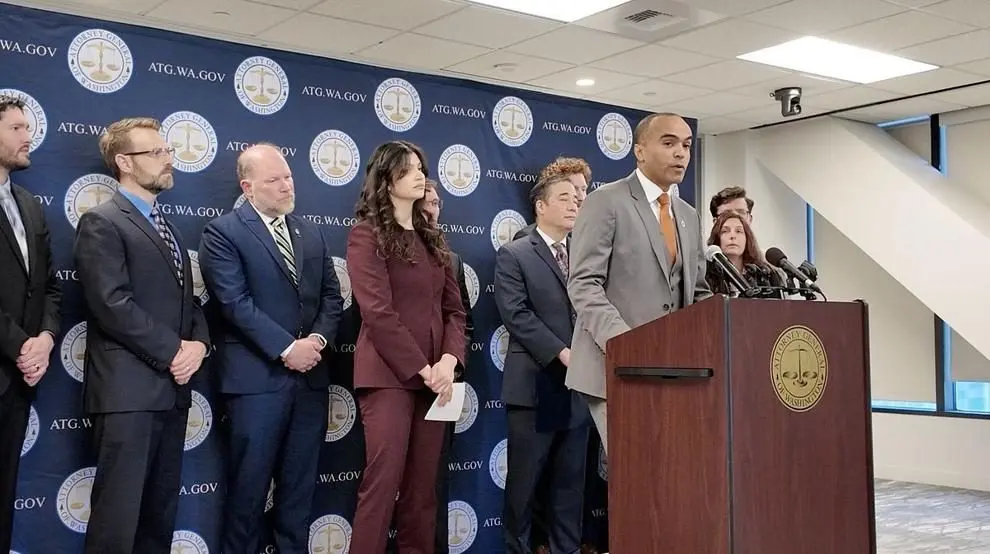This article was first published by Cascadia Daily News.
A group of education leaders is working to reshape Washington’s system of funding for K-12 education after years of financial challenges plaguing school districts.
Two Whatcom County superintendents are taking part. Meridian Superintendent James Everett and Ferndale Superintendent Kristi Dominguez are participating with the group, which was formed by Yakima Superintendent Trevor Greene and Bellevue Superintendent Kelly Aramaki last summer.
“We know that there’s a problem, and we can continue to admire it, and talk about it, or we can sit down and say, ‘This isn’t working,’” Dominguez said.
The catalyst for the formation of the group was Aramaki’s experience having to make massive budget cuts over the last several years, according to Seattle Times reporting. Bellevue is now on binding conditions with the state, joining seven other districts (including Mount Baker) receiving financial oversight from the state due to serious budgetary challenges.
That demonstrates the breadth of the problem, the superintendents say. And it doesn’t even include the many more districts that are enduring massive cuts to avoid financial oversight by the state, including Blaine, Bellingham and more. Ferndale eliminated $6 million in expenses from its budget this year. Meridian eliminated $1 million this year and $2 million the year before.
For Dominguez and Everett, it’s clear the current funding model isn’t working.
“There’s something broken in the system,” Dominguez said. “So we’re just asking, what new system do we need to explore?”
The main issue, they say, is that the state doesn’t come close to funding what the schools must pay for. As costs and student needs have increased, funding hasn’t kept up.
The superintendents were initially pulled from the University of Washington alumni network but have since expanded to more than 20 superintendents across the state. They’re working with the University of Washington College of Education, including Dean Mia Tuan, Professor Anthony Craig and Professor David Knight.
Washington funds schools under a system called a “resource funding model,” which bases allocations on a series of student-staff ratios, according to research by Knight.
Many other states, however, follow a student-based approach. Under that system, districts receive a base amount of funding per student, with additional funding designated for students who are low-income, multi-language learners or need specific support services. Then, that is multiplied by district enrollment to determine how much money the district gets from the state.
Dominguez simplified the system as “the money follows the adults” in Washington, while it follows the students in other states.
An example of how that plays out in local districts: The state pays for Ferndale to hire seven paraeducators across the whole district. But in the 4,600-student district, “we need far more than that just to cover lunch duties, before or after school, playgrounds,” Dominguez said. In Meridian School District, the state pays for half a nurse, Everett said.
Despite the funding issues, schools must continue to meet the needs of students, and they are “working their butts off” to do so, Everett said. But it’s with less and less funding.
The way local levies are set up causes issues, too.
“The higher assessed value of property that you have, the better ability you have to secure funding with less impact on your community,” Everett said.
While districts like Seattle can run levies that bring in hundreds of millions of dollars at a modest cost to the individual taxpayer, property-poor districts must have higher tax rates to bring in much less.
It’s created competing agendas between property-rich and property-poor districts. But the intention is to come up with a proposal that works for everyone, Everett said.
Everett said his biggest takeaway from the experience was that no district has it figured out — even areas with high levels of assessed value, such as Bellevue.
By their next meeting in October, the plan is to come up with a specific proposal they want to push forward, Everett said.
“We are now at crisis level in many ways, and it’s our kids who are going to pay the price,” Dominguez said. “… At what point do we just say, enough? We’ve got to get proactive.
Charlotte Alden is CDN’s general assignment/enterprise reporter; reach her at charlottealden@cascadiadaily.com; 360-922-3090 ext. 123
Cascadia Daily News is a locally owned newspaper in Bellingham, Washington. You can learn more about the publication and subscribe here.






